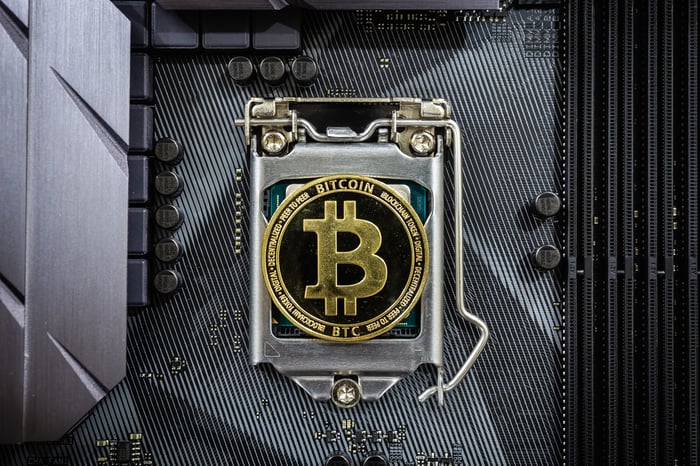Gold and Bitcoin (BTC -0.42%) have been good investments this year, and both have outperformed the S&P 500 index year to date.
Bitcoin is up about 17% so far in 2025. That beats the S&P 500 index, which is up about 14% year to date. But gold is crushing them both. The yellow metal has soared 60% since the beginning of the year.
So, what's going on? And should investors continue to think of Bitcoin -- the leader of cryptocurrencies -- as digital gold?
Currencies or stores of value?
There are some similarities between these two very different assets. Gold was once a universal currency, and Bitcoin is called a currency. Yet today, neither are actual currencies.
Gold was first used as money in Asia Minor around 600 BCE and spread throughout the world as an everyday currency, via gold coins. Even after most nations switched to paper currencies, those were typically backed by gold -- a system known as the gold standard. But during the past century, that too was abandoned. Today the shiny metal is a store of value, but very rarely used as a medium of exchange.
Bitcoin was created by the mysterious Satoshi Nakamoto in 2009. It was meant to eventually become an exchange medium that would supplant the dollar and other fiat currencies.

Image source: Getty Images.
Realistically, Bitcoin too is more of a store of value -- and a speculative investment -- than a currency. Sure, there are some merchants and companies that accept payments in Bitcoin, but economists generally consider it far too volatile to be used as a medium of exchange. That's why those merchants may accept Bitcoin as payment, but they're usually pricing their goods in far less volatile dollars or other major fiat currencies.
While Bitcoin enthusiasts will argue that government-issued currencies like the dollar also change in value over time due to inflation, that change tends to be slow, steady, and -- most importantly -- predictable.
The value of Bitcoin, in contrast, is all over the map. The crypto sees huge price swings, sometimes increasing or falling by thousands of dollars in a day. That volatility alone renders it virtually unusable as a currency.
The outlook
What does the future hold for the two asset classes?
Gold continues to climb due to a couple of concrete factors. It retains its status as a haven in times of financial stress. Today, concerns about geopolitical tensions, stubbornly high inflation, and tariff-induced chaos in the global trading system are pushing many investors to the safety of gold, driving its price higher.
More important at the moment is central bank buying. Central banks and other government institutions around the world are in the midst of a gold accumulation run as they seek to diversify their holdings away from dollar-denominated assets. The trend began in 2022 after Russia invaded Ukraine, and the U.S. reacted by freezing Russia's foreign exchange reserves.
Central banks have purchased more than 1,000 tons of gold each year for the past three years, and it seems that they have no plans to slow their shopping spree. A recent survey by the World Gold Council found that 43% of central banks said they would continue to increase their gold reserves, and 95% believed that overall gold reserves will continue to rise over the next 12 months.
So it seems that the price of gold will continue to climb for the foreseeable future.
Digital gold, or not?
Gold also tends to perform well in times of financial stress and elevated inflation, while Bitcoin price moves show no such pattern. Bitcoin's value is driven by supply and demand (as are most commodities and assets), but the crypto tends to be more speculative, and major price moves often result from waxing or waning popularity alone.
To be sure, despite its high volatility, Bitcoin has been a good investment for those who got in early and held on. Just three years ago, it was trading at less than $20,000, and today, it's worth more than five times that.
So, while Bitcoin remains starkly different from gold as an asset, smart investors might devote a small portion of their portfolios to both assets -- gold as a hedge against inflation and a possible bear market in stocks, and Bitcoin as a purely speculative play.




